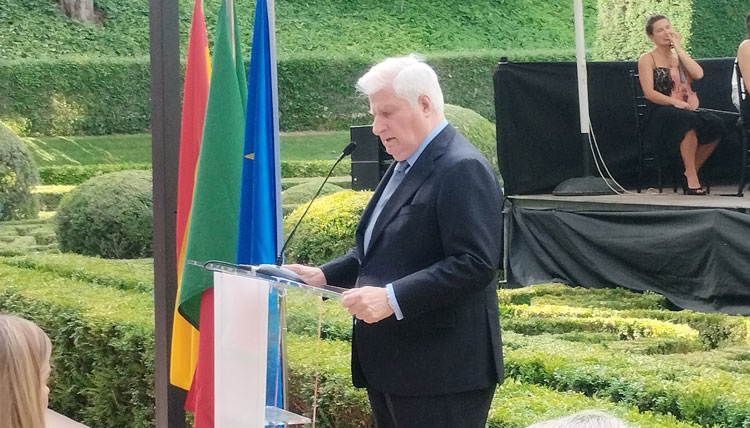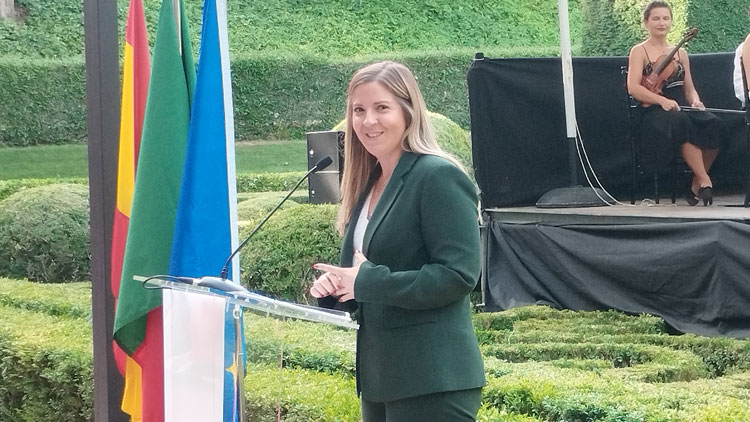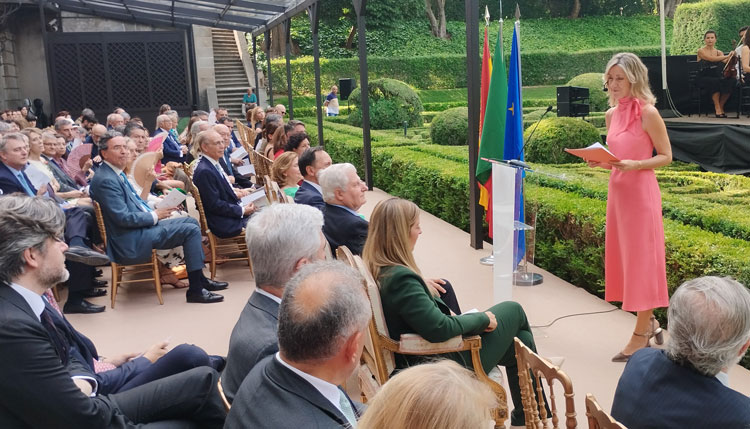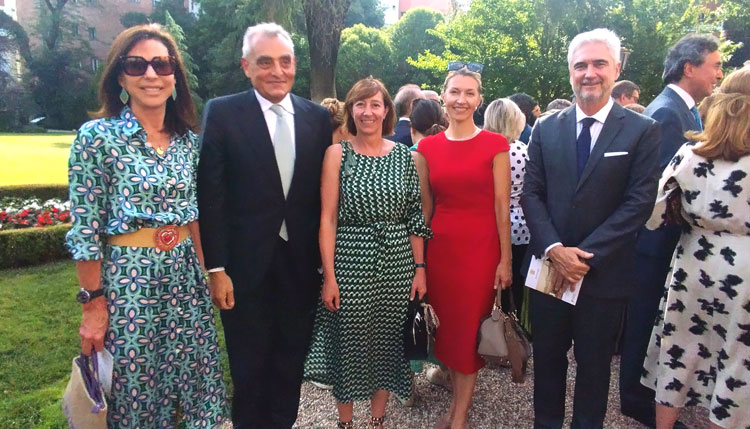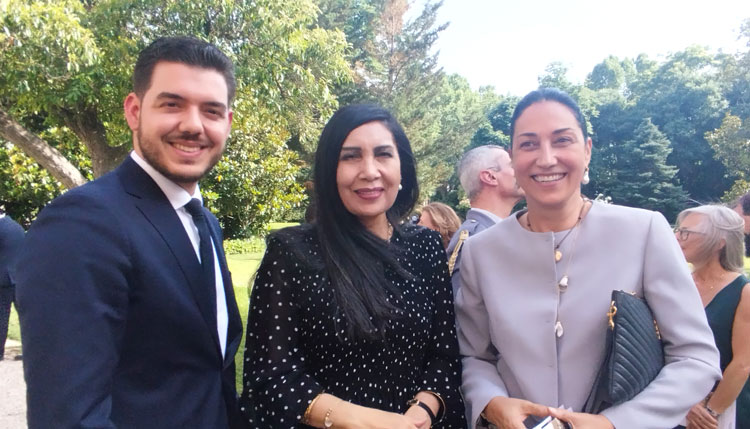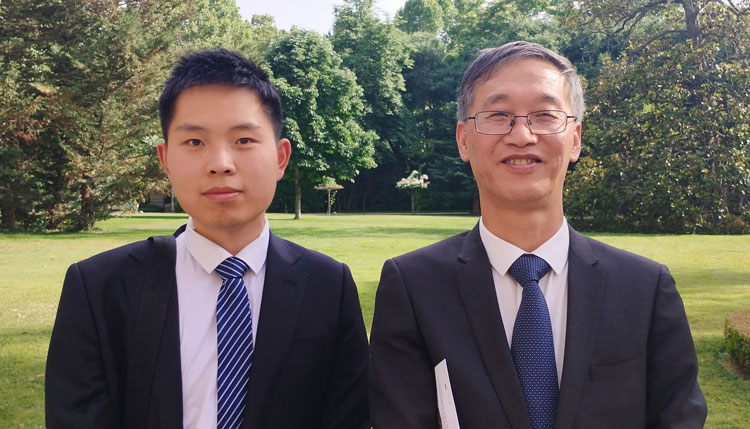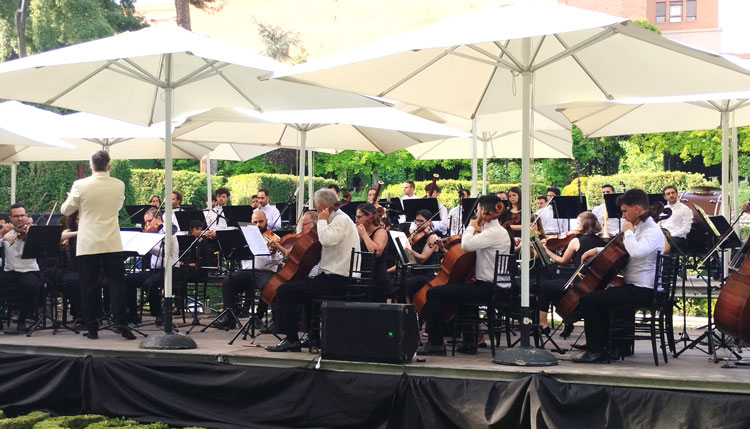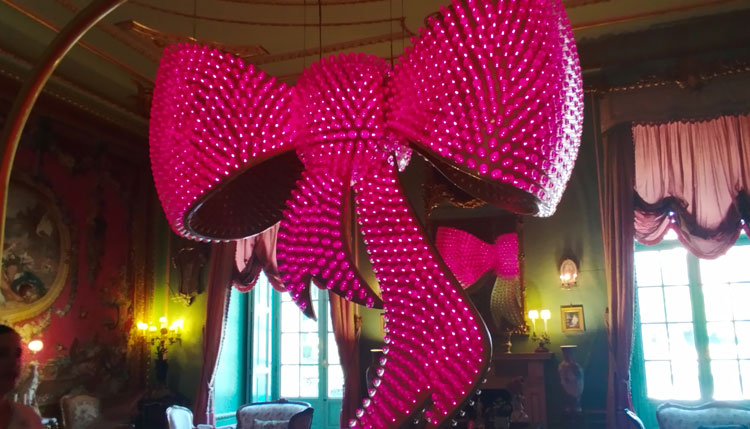Juan David Latorre
The Portuguese Embassy hosted an original reception last Monday at the Liria Palace in Madrid, hosted by the Duke of Alba, Carlos Fitz-James Stuart, for the special celebration of Portuguese National Day, the Day of Camões, and the Day of the Portuguese Communities.
“It is an honor for the House of Alba to host the celebration of Portugal Day at the Liria Palace,” commented Carlos Fitz-James Stuart. “This day will have an evidently cultural character, as befits an ancient nation full of historical milestones such as Portugal.”
“First of all, on this important day,” continued the Duke of Alba, “I want to pay a heartfelt tribute to the Prince of the Portuguese Islands, Luis Vázquez Camoés, who magnified the universal literature of the 16th century. The author of the immortal work, Os Misaves, develops his work vertically between classicism and magnetism. In some of his sonnets, such as the well-known Amor de Fuego, he already announces the approaching Baroque. And it is precisely in the Portuguese Baroque that it reaches its maximum expression in the masterpiece of the artist and poet Joana Vasconcelos.” With her highly personal artistic beauty, Joana enlivens not only this Casa, but also its visitors and the entire city of Madrid. Our gratitude to Joana and to Portugal, which has given us the emotion of the edge, generated by overwhelming and monumental creativity.”
“Today, this event concludes with the Journey to the South concert, which will be offered by the Portuguese Symphony Orchestra, one of the most outstanding ensembles on the Portuguese musical scene. Culture in Madrid, the fundamental purpose of the Casa de Alba, has been enriched and continues to be enriched by these incomparable Portuguese artistic expressions. Thank you very much.”
And if the Portuguese reception was original, so was the speech given by the Portuguese ambassador, José Augusto Duarte, when he stated that “as you know, the ambassador is the sole highest representative of a state in the absence of the political authorities of his country. Well, since I have the enormous privilege and personal pleasure of having our Portuguese Minister of Culture, Youth, and Sports, Margarida Balseiro Lopes, with us, I will retreat to the much more comfortable position of being a supporting figure, leaving my prime minister the necessary space for a more political and broader speech.”
Before taking the floor, the Portuguese ambassador explained that this year they wanted to celebrate Portugal Day “with a different format.” “We wanted to put on a good concert with the full orchestra and discover the sounds of the culture of both countries that are part of Portugal’s heritage in Spain. An auditory journey that would lead us to discover the specificities of each of our commonalities. That’s why the concert you’re about to hear is called Journey to the South.” The Portuguese ambassador then described the four musical pieces performed by the Portuguese Symphony Orchestra, conducted by Maestro Osvaldo Ferreira: the Intermezzo from Cavalleria Rusticana by Pietro Mascagni; The Three-Cornered Hat by Manuel de Falla; the Alentejana Suite No. 1 by Luís de Freitas Branco; and Bolero by Maurice Ravel.
José Augusto Duarte stated that this concert “demonstrates that not everything in the south is drama, and that the supreme elegance and effectiveness of melodies that appeal to beauty and peace are also part of the musical journeys through the south of Western Europe, revealing a richness that comes from diversity far beyond any commonplace.”
Finally, the Portuguese ambassador wished to thank the Duke of Alba for the opportunity to celebrate Portugal Day “in one of Spain’s most symbolic residences,” the Liria Palace, “in this magnificent and special place. I am aware, Mr. Duke, that since this is a private residence, it is not usually open to celebrations of this type, and that is why we are here with the feeling that today is a privilege.” The ambassador also thanked the Generalitat de Cultura of Portugal, “who covered all the expenses for that occasion, thus demonstrating how central and strategic the relationship with Spain is in the cultural sphere.” He also thanked Maestro Osvaldo Ferreira and all the musicians of the Portuguese Symphony Orchestra, the presenter of the event and the RTVE program Audiencia abierta, María del Carmen Romero, the team at the Portuguese Embassy, and the guests for being present. “I am deeply moved by your friendship and support,” he stated.
“Sometimes it is good to innovate and have ambition,” he concluded, “even if it may entail risks. Therefore, I sincerely hope that when this event is over, all of you will consider, as the poet Fernando Pessoa said, that in the end, everything in life is worth it when the soul is not small.”
The Portuguese Minister Margarida Balseiro Lopes then took the floor and, after thanking the Duke of Alba, the Portuguese ambassador and the Portuguese Philharmonic Orchestra, she wanted to celebrate “the excellent bilateral relations between Portugal and Spain.”
The minister referred to the “symbol of prestige” for Portugal that the Casa de Alba houses the works of Portuguese artist Joana Vasconcelos, “a good example of the dialogue between classical and contemporary art, but also of the affinity and close collaboration between Portugal and Spain.”
Margarida Balseiro Lopes emphasized the shared history of the two countries, as well as the fact that “both countries embraced democracy, and this new freedom, after decades of dictatorship, radically transformed Portuguese and Spanish societies, with culture and the arts considered essential for building a democratic, pluralistic, and open society. Years later, during the transition to democracy, the governments of both countries decided to create a joint cultural program that not only commemorated the date but also explored the role of arts and culture as a tool for promoting human rights and freedom.” Thus was born the Portugal-Spain cross-cultural program, 50 Years of Culture and Democracy, through which a vast program of cultural events was designed, involving public, private, and civic society stakeholders. But this year we also celebrate another anniversary: on June 12, 1985, almost 40 years ago, Portugal and Spain signed the Treaty of Accession to the European Communities. The signing ceremonies took place in 1985, on the same day and simultaneously at the Royal Palace in Madrid and the Jerónimos Museum in Lisbon, respectively”.
“The democratic transitions and joint entry into the European Economic Community,” he continued, “were marked by a spirit of renewed cooperation, mutual trust, and a concerted effort to align interests within the European space. Portugal and Spain strengthened their neighborhood ties, contributing together to the construction of a Europe that is more secure, more open, and more committed to its citizens.” I sincerely believe that European integration strengthened the bonds of friendship between Portugal and Spain more than any other political element in the centuries-old relationship between our two nations. The political, economic, and cultural rapprochement of the Iberian countries and their respective societies is perhaps one of the best results achieved by the two countries since they joined the European project.”
“Today, it is impossible to think of the Portuguese economy without Spain, or vice versa,” concluded Margarida Balseiro Lopes. “But this rapprochement did not stop at the economy. Recent years have also brought a new impetus to cultural dialogue, the exchange of ideas, and a meeting of generations. Young Portuguese and young Spanish people began to study together. Friendships, projects, and human connections were created that are now an essential part of the relationship between the two countries. Today, we are truly neighbors, brothers, and friends.”
